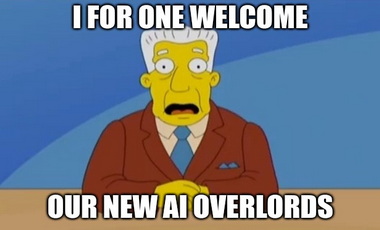Watching Matt Walsh yesterday he said something that made me wanna excerpt it. I didn’t get to it last night, and luckily I didn’t. This morning at a men’s group discussion during small groups a verse on truth came up (Galatians 4:16), and that reminded me of a J. Vernon McGee commentary, which brought me to Chuck Smith as well (also discussed at the meeting this morning). Of course this short video wouldn’t be complete without Jack Nicholson’s character in the movie “A Few Good Men,” Colonel Nathan R. Jessep, talking about truth. So I hope this hits the right nerve with some who happen upon this.
Here are some commentaries on Galatians 4:16
Have I now become your enemy by telling you the truth? (HCSB)
Truth is not always relished where sin is nourished
L. Moody, Notes from My Bible: From Genesis to Revelation (Chicago; New York; Toronto: Fleming H. Revell, 1895), 165.
A person with pure motives and real friendship does not always say things that are pleasant to hear. Paul was telling the Galatians the truth, and as result was being labeled as their enemy. Sometimes the truth hurts; but a faithful friend would courageously confront another.
Earl D. Radmacher, Ronald Barclay Allen, and H. Wayne House, The Nelson Study Bible: New King James Version (Nashville: T. Nelson Publishers, 1997), Ga 4:16.
I had always wanted to place on the pulpit, facing the preacher, the words, “Sir, we would see Jesus.” A very fine officer of the church I served in downtown Los Angeles did this for me after he heard me express this desire. There is another verse I wanted to place on the audience side of the pulpit, but I never had the nerve to do it. It is these words of Paul: “Am I therefore become your enemy, because I tell you the truth?” As you know, many folk today really don’t want the preacher to tell the truth from the pulpit. They would much rather he would say something complimentary that would smooth their feathers and make them feel good. We all like to have our backs rubbed, and there is a lot of back-rubbing from the contemporary pulpit rather than the declaration of the truth.
Vernon McGee, Thru the Bible Commentary, electronic ed., vol. 5 (Nashville: Thomas Nelson, 1997), 179.
QUESTION—Is this a question or a statement?
- It is a rhetorical question [BNTC, Lns, Lt, Mor, NIGTC, NTC; all versions]: because I am being truthful to you, have I therefore become your enemy? The Galatians do not appear to be able to tolerate the truth [NTC]. Paul wants them to face the reality of what they were doing. Paul was not their enemy when he initially preached the gospel to them, and as he continued to do so, and they should see it as a friendly gesture, not as a hostile one [Mor]. Paul wanted them to realize that he was truly their friend even though he had to use strong language in this letter and possibly in the previous letter [NTC].
- It is a statement [ICC, NCBC, NIBC, NIC, SSA, WBC]: therefore it appears that I have become your enemy because I am being truthful to you! The idea is ‘So I have become your enemy!’ and this reflects the Judaizers’ view of Paul, not Paul’s [NCBC]. The conjunction ὥστε ‘therefore’ indicates a conclusion from the facts stated in 4:14–15: Since they once regarded Paul with such great affection and now consider him as an enemy, this could only come about because he had been telling them the truth [ICC, WBC].
Robert Stutzman, An Exegetical Summary of Galatians, 2nd ed. (Dallas, TX: SIL International, 2008), 160.
become your enemy There come times with all God’s servants when certain people proclaim something fresh and new in doctrine, and then the old messenger of God, who was blessed to them, comes to be despised. I have lived long enough to see dozens of very fine fancies started, but they have all come to nothing. I daresay I shall see a dozen more, and they will all come to nothing. But here I stand. I am not led astray either by novelties of excitement or novelties of doctrine. The things which I preached at the first, I preach still, and so I shall continue, as God shall help me. But I know, in some little measure, what the apostle meant when he said, “Am I therefore become your enemy, because I tell you the truth?”
by being truthful to you There are many who have incurred enmity through speaking the gospel very plainly, for the natural tendency of man is toward ceremony, toward some form of legal righteousness: he must have something aesthetic, something that delights his sensuous nature, something that he can see and hear, to mix up that with the simplicity of faith. Paul was as clear as noonday against everything of that kind, and so the Galatians got at last to be angry with him. Well, he could not help that, but it did grieve him.
Charles Spurgeon, Galatians, ed. Elliot Ritzema, Spurgeon Commentary Series (Bellingham, WA: Lexham Press, 2013), Ga 4:16.
Am I therefore become your enemy? He now returns to speak about himself. It was entirely their own fault, he says, that they had changed their minds. Though it is a common remark, that truth begets hatred, yet, except through the malice and wickedness of those who cannot endure to hear it, truth is never hateful. While he vindicates himself from any blame in the unhappy difference between them, he indirectly censures their ingratitude. Yet still his advice is friendly, not to reject, on rash or light grounds, the apostleship of one whom they had formerly considered to be worthy of their warmest love. What can be more unbecoming than that the hatred of truth should change enemies into friends? His aim then is, not so much to upbraid, as to move them to repentance.
John Calvin and William Pringle, Commentaries on the Epistles of Paul to the Galatians and Ephesians (Bellingham, WA: Logos Bible Software, 2010), 129–130.
Paul’s emotion betrays itself in the ellipsis of his thought. At one time the Galatians counted themselves blessed for having Paul in their midst, but this is passed. Is the opposite now the case? And so have I become your enemy by telling you the truth?
Read this as a question; ὥστε means, “and so,” R. 999. “An enemy of yours” is active, one who hates you, and not passive, one who is hated by you (C.-K. 459). The perfect tense “have I become” is used in the Greek fashion from the standpoint of the readers and refers to the time when they read this letter in which Paul tells them the truth. Will they then say: “Paul has become hostile to us”? Ah, but it is the best and the truest friend who honestly tells us the truth about ourselves even when he knows we shall not like it. False friends are the ones who hide such truth from us and do so in order to remain in our favor.
Some regard this statement as a declaration: “Wherefore I have become your enemy by telling you the truth.” But that is not true (v. 19). If he intends to imply that the Galatians now consider him as being hostile to them, this thought is expressed far better by a question. The declarative idea is made more confusing when the inferior reading in v. 15 is adopted: τίς οὖν ἦν; “What, then, was your felicitation of yourselves?” and supplying in thought: “Nothing but superficiality,” and then attaching: “Wherefore I have become your enemy.” Paul regards the self-felicitation of the Galatians as being genuine; he even states the strongest reason for his so doing: that they were willing to sacrifice their eyes for him.
Again, Paul is not their enemy. Finally, the ὥστε clause cannot be construed across the intervening γάρ statement and attached to the question asked in v. 15. The reason: “I testify,” etc., would be contradicted by any declaration that Paul is an enemy of the Galatians. Regard the sentence as a question, and all is readily understood.
C. H. Lenski, The Interpretation of St. Paul’s Epistles to the Galatians, to the Ephesians and to the Philippians (Columbus, O.:Lutheran Book Concern, 1937), 222–223.
It was natural that a certain uneasy reserve should begin to mark the Galatian Christians’ attitude to Paul. They knew that the teaching to which they were now giving ear could not commend itself to him, and that he would disapprove of their accepting it. This reserve would be reinforced if they entertained suggestions tending to discredit him, or to diminish his standing in their eyes. When he heard of what was happening, he could be trusted to tell them they were wrong, and such plain speaking was bound to be unpalatable.
ὥστε is used here to introduce a rhetorical question.
It is hazardous to find in Paul’s use of ἐχθρὸς here the source of his later designation among the Ebionites as ἐχθρὸς ἄνθρωπος (Epistle of Peter to James, 2; Clem. Recog. 1.70f.), as is done by H.-J. Schoeps, Judenchristentum, 120, 474; Paul, 82; a much more probable source is the ἐχθρὸς ἄνθρωπος of Mt. 13:28 (cf. Schoeps, Judenchristentum, 127).
ἀληθεύων. In telling them the truth Paul is their best friend. The truth he is now telling them is the same as what he told them when first he came among them, and on that occasion it won their friendship for him. For this ‘truth’ is nothing other than the good news of divine grace. If it is true, then the ‘other gospel’ brought by the trouble-makers is self-evidently false. It is reading an alien idea into the text to say with W. Schmithals, ‘Precisely this argument of Paul shows that in truth people in Galatia were declaiming against Paul on account of the apostle’s fleshly [“sarkic”] weakness’ (Paul and the Gnostics, 50 n. 107).
The situation, in fact, is not unlike that in which Paul was later involved with the Corinthian church, when it was visited by interlopers who brought a ‘different gospel’ and tried to disparage Paul in his converts’ eyes; Paul protests his unchanging love for his friends, even while he remonstrates vigorously with them: ‘If I love you the more, am I to be loved the less?’ (2 Cor. 12:15).
F. Bruce, The Epistle to the Galatians: A Commentary on the Greek Text, New International Greek Testament Commentary (Grand Rapids, MI: W.B. Eerdmans Pub. Co., 1982), 211.
ὤστε ἐχθρὸς ὑμῶν γέγονα ἀληθεύων ὑμῖν, “so, [it seems,] I have become your enemy because I am telling you the truth!” Elsewhere in the NT ὤστε (“therefore,” “so”) is always used at the beginning of independent clauses to draw an inference from what has just been stated (cf. Gal 3:9, 24; 4:7, etc.). Most commentators acknowledge this. Yet almost all critical texts, translations and commentaries treat v 16 as a rhetorical question (e.g., WH, Souter, Nestle, UBSGT, KJV, RSV, JB, NIV, Lightfoot, Lietzmann, Oepke, Schlier, Mussner, Betz, Bruce), despite demurrings to the contrary (cf. Betz, Galatians, 228: “The connection of ὤστε [“therefore”] is certainly loose”; ibid., 228 n. 97: “ὤστε [“therefore”] introducing a question is odd”). Nonetheless, linguistically speaking, Burton, Zahn, and Sieffert are right: v 16 must be read as an indignant exclamation that draws an inference from what is stated in vv 14–15; “the appropriate punctuation is, therefore, an exclamation point” (Burton, Galatians, 244–45). It is not, of course, Paul’s own statement of relationships, but his evaluation of what seems to be his converts’ attitude: “So, [it seems,] I have become your enemy because I am telling you the truth!”
ἐχθρός, “enemy,” was the epithet given Paul by the later Ebionites (cf. Ps.-Clem. Hom., Ep. Pet. 2.3; Ps.-Clem. Recog. 1.70), though whether the Judaizers of Galatia ever used it of him is impossible to say. The modal present participial phrase ἀληθεύων ὑμῖν, “by telling you the truth,” refers not to some past proclamation, but to the truth Paul is now telling the Galatians, which, of course, is what he told them when he was first with them and which then won such a favorable response from them.
Richard N. Longenecker, Galatians, vol. 41, Word Biblical Commentary (Dallas: Word, Incorporated, 1990), 193.
















